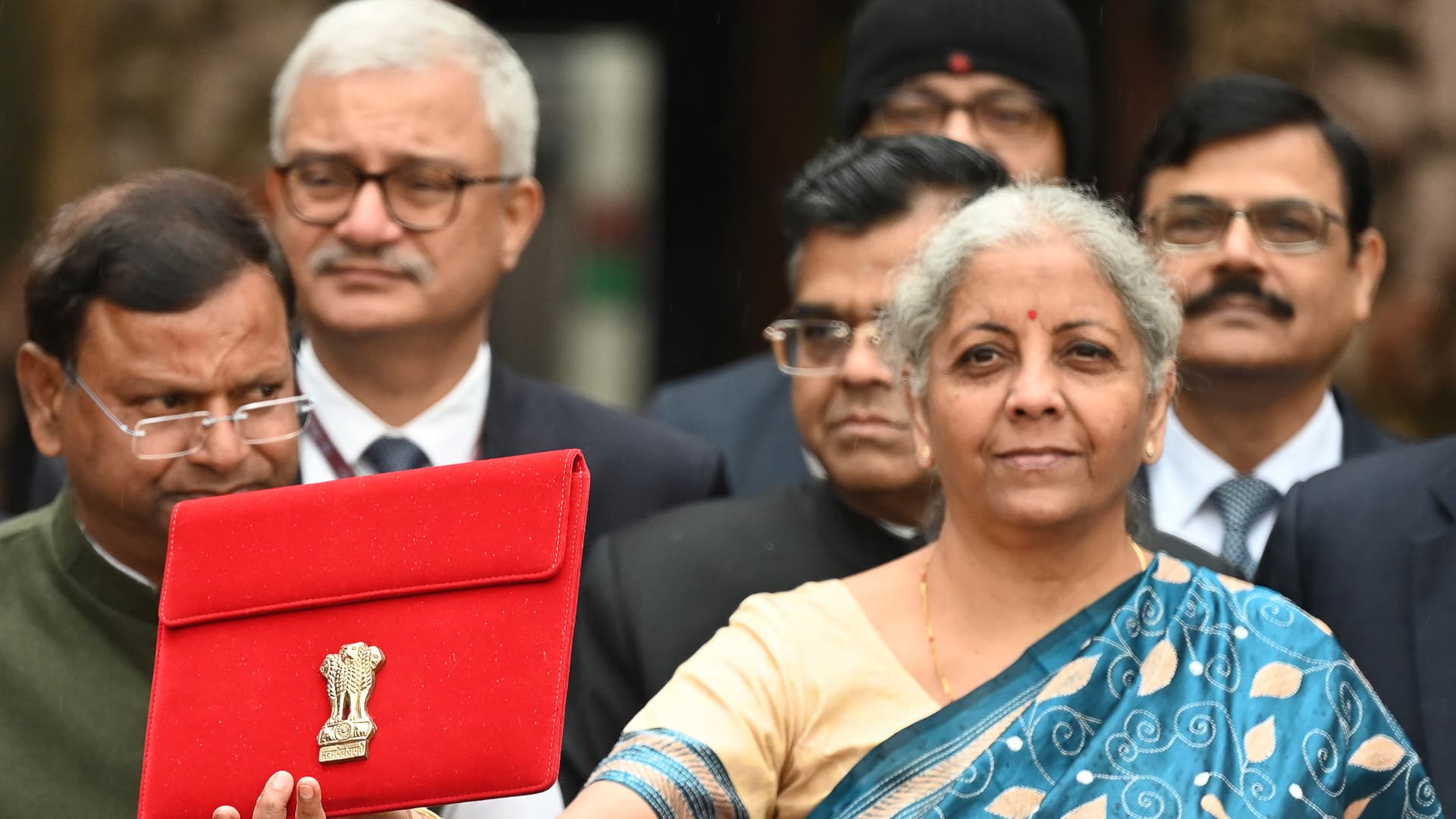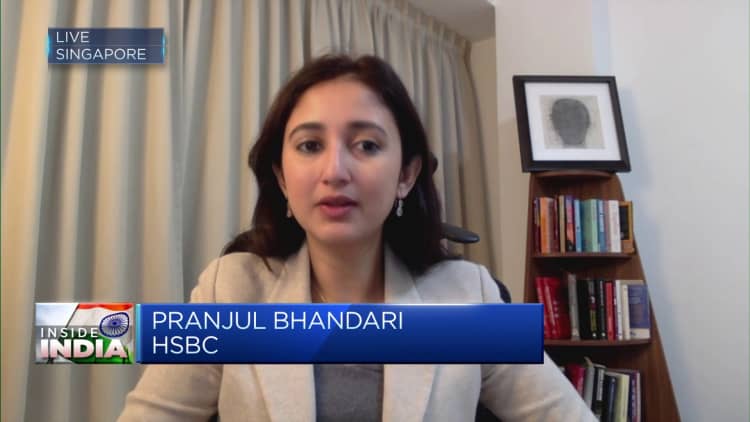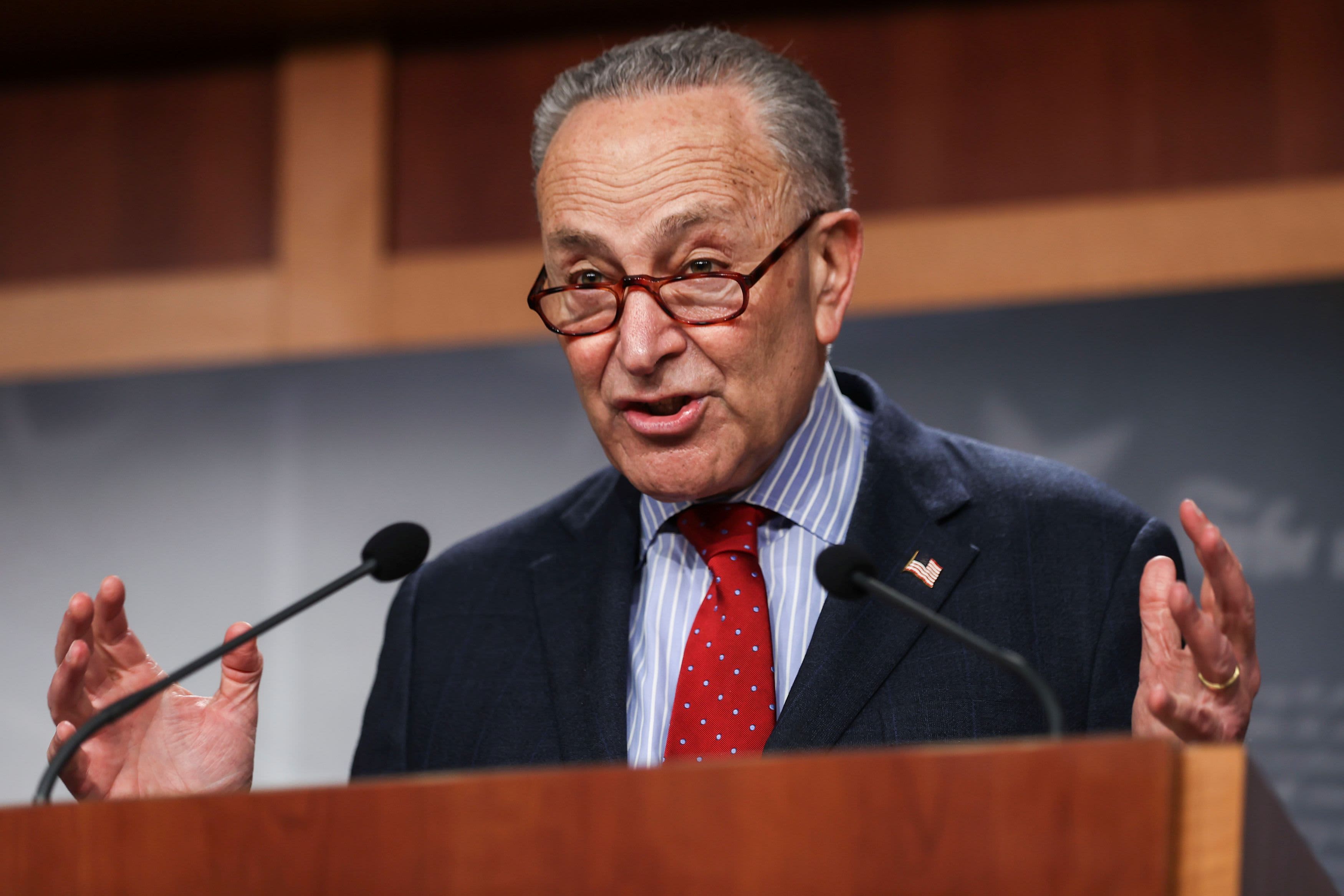India expects fiscal deficit for 2025 to narrow to 5.1% even as it boosts infra spending
India's finance ministry presented the country's interim budget for 2024, ahead of the highly anticipated general elections.

India's Finance Minister Nirmala Sitharaman along with her staff poses for pictures as she leaves the Finance Ministry Office to present the annual budget in parliament in New Delhi on February 1, 2024.
Sajjad Hussain | Afp | Getty Images
India's finance minister, Nirmala Sitharaman, said on Thursday the country's fiscal deficit for financial year 2025 will narrow to 5.1% from the revised 5.8% for 2024.
Capital expenditure will rise by 11.1% to 11.11 trillion rupees ($133.9 billion) in fiscal year 2025, while tax revenue for the year is expected to rise by 11.4% to 38.31 trillion rupees ($461.7 billion), Sitharaman said while presenting the interim budget before the general elections.
"India has achieved a trinity of impossible by enhancing infrastructure investment, supporting inclusive growth and yet maintaining fiscal prudence," said Nilesh Shah, managing director at Kotak Mahindra Asset Management.
Sitharaman spoke extensively about developing India's air connectivity, citing Indian carriers ordering more than 1,000 aircraft in the recent past, and emphasizing that the "development of new airports will continue expeditiously."
Indigo in June last year placed the biggest commercial aircraft order in history for 500 Airbus A320 which will be delivered between 2030 and 2035, topping Air India's deal to purchase 470 planes from Airbus and Boeing the same month.
Akasa Air last month ordered 150 Boeing 737 MAX planes.
She also highlighted the potential of the India-Middle East-European Union corridor unveiled at G20 last year as a "gamechanger." U.S. President Joe Biden had called the initiative "a real big deal."
"The continued higher allocation to infrastructure bodes well from growth point of view and may act as a catalyst for enhanced private capital expenditure," Shah told CNBC.
Sitharaman said that long-term interest free loans would be given to various states to develop tourist centers, while highlighting that spiritual tourism saw a boost last year.

India, which has the world's largest Hindu population could see an additional 50 million to 100 million tourists a year on account of the new Ram Mandir — a temple in the northern city of Ayodhya inaugurated last month — according to Jefferies.
As much as 750 billion rupees at a 50-year interest free loan will be set aside for states to boost tourism, Sitharaman said.
Noting that India's economy will see an "unprecedented" development, Sitharaman highlighted four major areas of focus for the government: poverty, youth, women and farmers.
"Their needs, their aspirations and their welfare are our highest priorities," she said.
The Finance Ministry said earlier this week that India could become the world's third-largest economy by 2027 with a gross domestic product of $5 trillion.
"Food, fertilizer, fuel and finances are issues due to pandemic, but India has successfully navigated its way," Sitharaman said, while reiterating the government's goal of a developed India by 2047.
The interim budget is seen as a stop-gap financial plan during an election year, aimed at meeting immediate financial needs before a new government is formed. The full union budget will only be released after the elections.

 Tfoso
Tfoso 
































